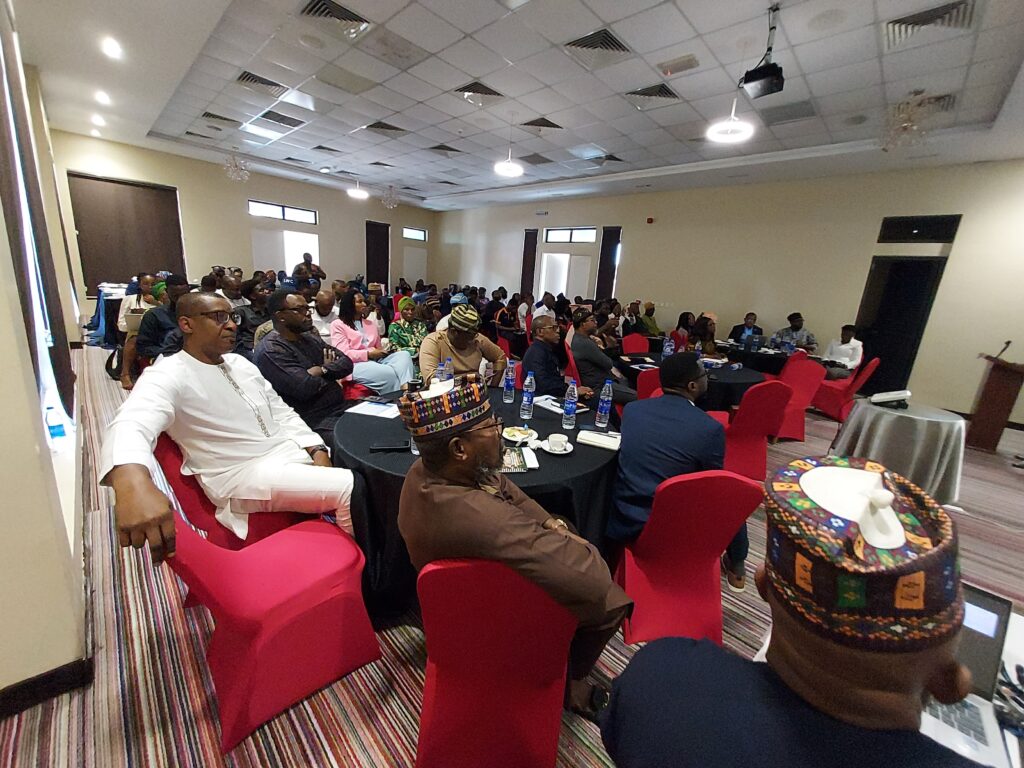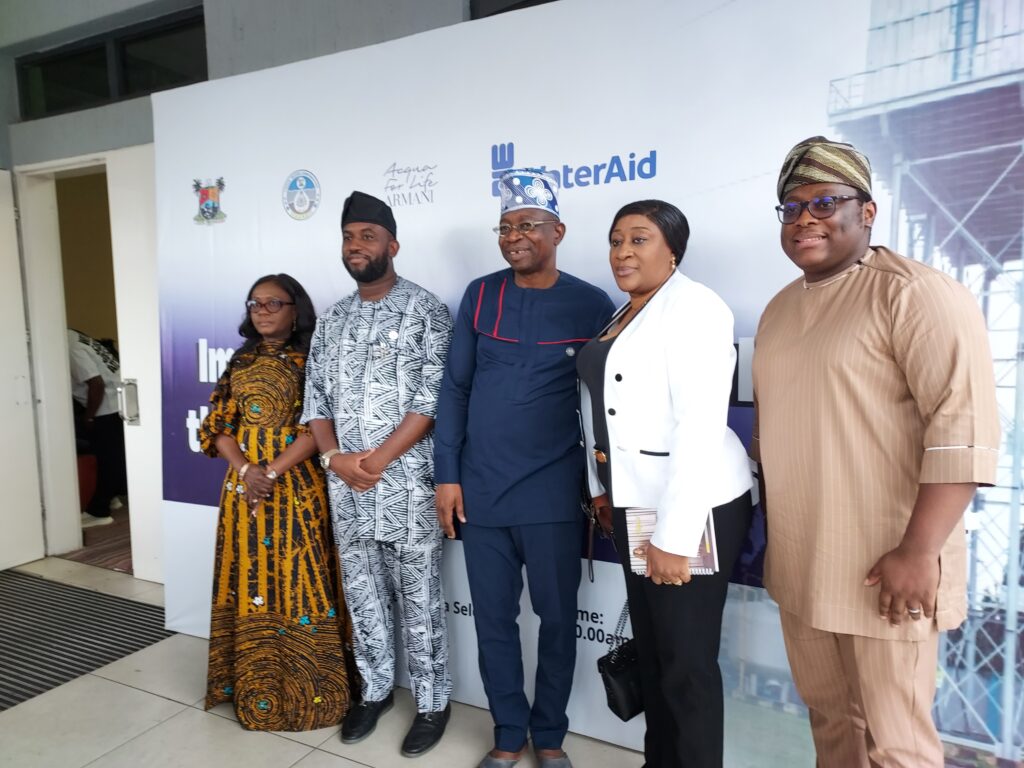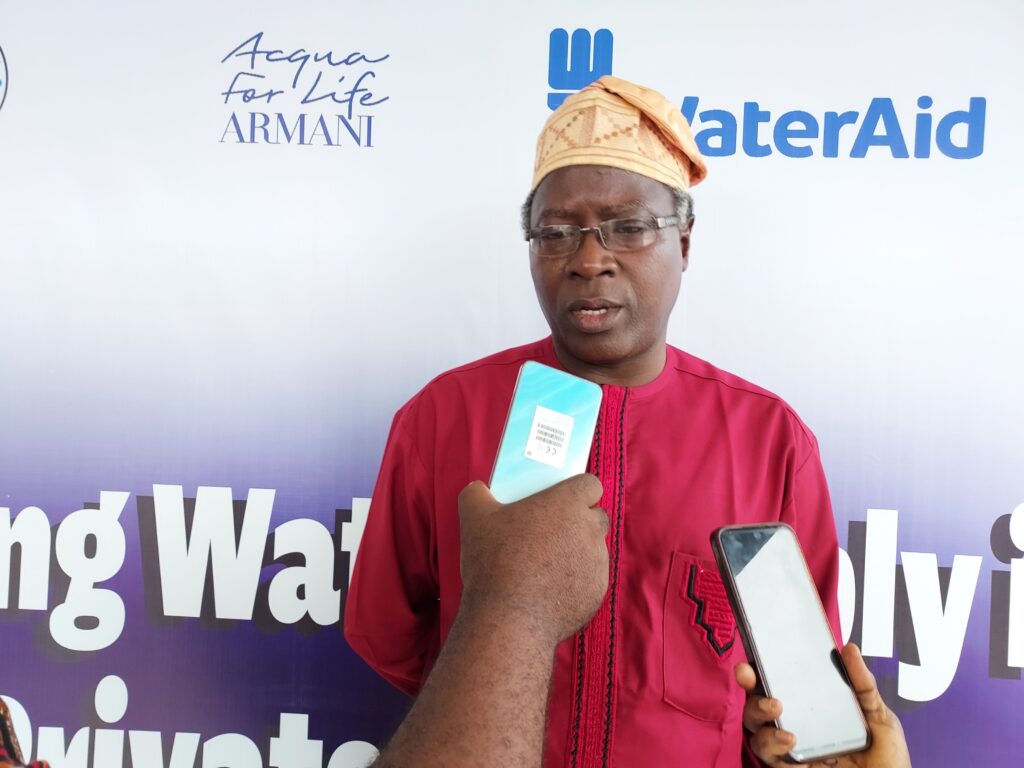At a two-day dialogue, government, lawmakers, investors, and community groups debated a new public-private partnership that promises relief for millions who spend their days fetching and buying water at high costs.
By Bunmi Yekini

Lagos, Nigeria’s most boisterous city, with over 20 million people continues to suffer from water scarcity. Despite its coastline and vast aquifers, millions of residents depend on boreholes, sachet water, and costly private tankers.
According to Lagos Water Corporation (LWC), less than 10% of Lagosians currently access water from its public network, an alarming statistic that directly undermines the United Nations Sustainable Development Goal 6 (SDG 6), which calls for universal access to safe water by 2030.
In a bid to reverse this crisis, the Lagos State Government convened a two-day stakeholder engagement on August 14–15 at Protea Hotel Select, Ikeja, in partnership with WaterAid Nigeria. Themed “Attracting Investment for Improved Water Supply in Lagos State through Public-Private Partnership,” the meeting brought together residents, legislators, procurement experts, and investors to explore how private sector efficiency could strengthen water delivery.

“We need their buy-in”
Mukhtaar Tijani, the Managing Director of LWC stated that the forum was about building trust:
“We invited community-based organisations, NGOs, investors, and the general public because they are the ultimate beneficiaries of this programme. We seek their buy-in, their understanding, and their support for the success of this PPP initiative.”
The Corporation currently runs two major treatment plants at Iju and Adiyan and 48 mini and micro plants scattered across the state. But many operate far below capacity. “This is why we are here,” Tijani stressed, “to see how we can improve service delivery to the people of Lagos.”
He rejected claims that LWC prioritises affluent neighbourhoods like Lekki over poorer districts.
“Statistically, it’s inaccurate. The plants are on the mainland, so lower-income areas often have better access. The pilot concessions will balance both highbrow and low-income communities.”
Lawmakers promise legal backing
On behalf of the Lagos House of Assembly, Ogundipe Stephen Olukayode, the chairman, house committee on information and strategy and security assured that legislation would not be an obstacle.
“Water is life. We need to leave something we can be proud of for the coming generation. If there are gaps in our current laws, we are ready to call for public hearings and quickly amend them to ensure the PPP works.”
The lawmaker also addressed affordability fears.
“Lagos often buffers vulnerable communities. Where payments are difficult, subsidies will step in. Nobody will be shortchanged.”

Investors’ confidence
While reassuring investors, Fatai Onafowote, Director-General of the Lagos Public Procurement Agency, said clarity on regulation and returns is crucial.
“Lagos is a large market with an enabling environment. We have procurement laws, PPP laws, and water regulatory frameworks in place. Investors can be confident their funds are safe and their returns guaranteed.”
He also highlighted the health risks of borehole dependence:
“Borehole water is untreated. People may not see the harm immediately, but microbes and pollutants in such water contribute to disease. We want Lagosians to have treated, potable water they can trust.”
“Not privatisation, but partnership”
Civil society groups have expressed concern that the PPP model could morph into privatisation. But Adebayo Alao, Head of Lagos Programme for WaterAid Nigeria, clarified:
“This is not privatisation. We are not handing over Lagos Water Corporation. We are saying private funding and efficiency can complement government efforts to deliver safe water. What we need is more engagement with CSOs so they understand this distinction.”
He acknowledged the current failure:
“Less than 10% of Lagosians are served by LWC today, that is unacceptable. Our goal is to raise that to 30–40% within five years. In 10 years, we should look back and say this was the turning point.”
Learning from Singapore
The PPP Office sees this as Lagos’ opportunity to leapfrog. Dr. Shem Ayegba, speaking for the Office of Public-Private Partnerships, drew inspiration from abroad:
“Singapore used to rely on Malaysia for its water. Today, they recycle nearly 100% of their water and operate desalination plants. Lagos must also innovate. This pilot concession, just 10% of our infrastructure, will test the model and help us scale.”
The road to SDG 6
Globally, SDG 6 challenges countries to achieve universal and equitable access to safe water by 2030. In Lagos, that means bridging a staggering gap, serving over 18 million people who currently fend for themselves.
With its population projected to hit 30 million by 2035, Lagos cannot afford business as usual. The PPP pilot represents both a risk and a promise: a risk that costs could rise for vulnerable households, but a promise that, for the first time in decades, water might finally flow reliably through taps in homes, schools, and hospitals.
As Tijani put it, the future of water in Lagos lies in collective responsibility:
“The government alone cannot do it. But with private investment, community support, and strong governance, we can make clean water accessible to all Lagosians.”
